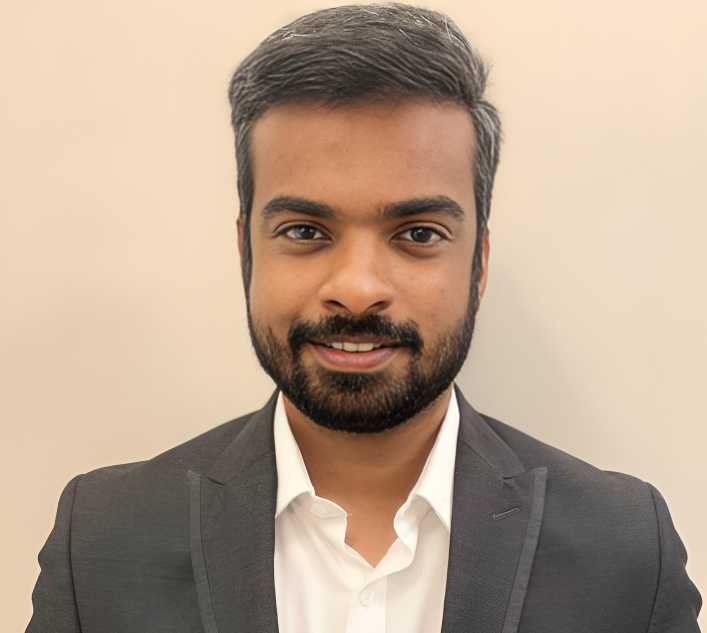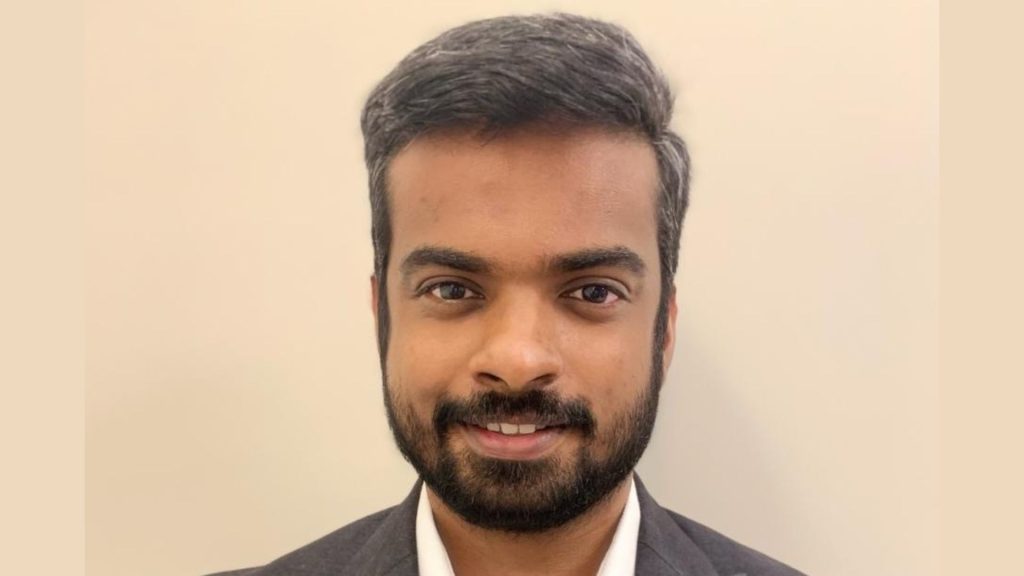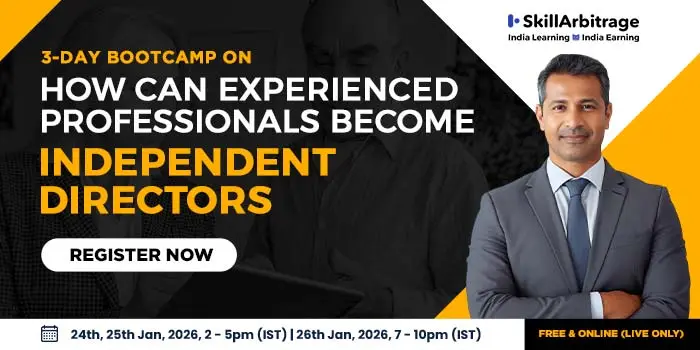This interview has been published by Anshi Mudgal and The SuperLawyer Team

With over a decade of experience behind you, what initially drew you to the field of media, entertainment, and technology law as your niche area of practice? Were there any specific instances or experiences in your early career that inspired this choice?
While I was pursuing my undergraduate studies in law, I found myself naturally drawn to intellectual property law. It was the subject that most piqued my interest and felt aligned with my strengths, which led me to pursue a master’s degree specializing in IP law. I would say that I chanced into the niche of media and entertainment, rather than setting out with a deliberate plan.
While at BananaIP Counsels, a boutique IP law firm based out of Bengaluru, where I started my career, an opportunity came up for a secondment with Yash Raj Films Pvt. Ltd., one of the most prominent film production houses in India. I happened to be available at the time and willing to make the move from Bengaluru to Mumbai. That secondment turned out to be the defining moment in my career – it exposed me to the world of media and entertainment law in a very hands-on way and sparked an enduring interest in the field.
Over time, that interest organically expanded into the technology space, mirroring the broader industry shift from traditional theatrical models to digital streaming and content distribution. It’s been a rewarding journey watching the intersection of IP, media, and tech evolve – and being able to grow along with it.
What motivated you to pursue law as a career in the first place? How was your experience pursuing your LL.M. in Intellectual Property Law at NLU Jodhpur, and in what ways has that specialization shaped or benefited your professional journey?
I’d have to be absolutely transparent here: I’d be lying if I said I always wanted to be a lawyer. Growing up, I explored several career paths, and even when the time came to make a serious decision, I didn’t have a clear plan. Like most parents, mine nudged me toward becoming an engineer or a doctor. But the problem was, I was genuinely terrible at math and chemistry. To this day, integration, differentiation, and organic chemistry remain terrifying concepts! That’s when the idea of law entered the picture – something that seemed respectable enough to satisfy my parents (especially since my father was once a lawyer), and doable enough for me to take a chance on.
That’s how I ended up in law, and while my entry wasn’t driven by some lifelong calling, I’ve loved every moment of it since. The learning process, the anxiety of the early years, the timidness in client calls, the thrill of my first contract closure – it’s been a rewarding journey in every sense.
Pursuing my LL.M. in Intellectual Property Law at NLU Jodhpur was a pivotal experience. I still vividly remember stepping onto campus and being immediately overwhelmed by the sheer intellectual energy around me. While I already had a budding interest in IP law, the environment at NLU Jodhpur – exceptional professors, a rigorous curriculum, and fiercely bright batchmates – amplified that interest manifold. Some of my most valuable lessons came not just from the faculty, but from my peers, who constantly challenged me to think sharper and work harder.
The academic foundation I received there has consistently supported me in my professional life, especially during complex negotiations. The theoretical grounding in IP law has helped me back my legal arguments with confidence and clarity. I truly credit NLU Jodhpur for deepening my interest in intellectual property and for equipping me with the tools that continue to shape my practice to this day.
You began your career with a prominent IP law firm. How did that experience help deepen your understanding of intellectual property law, and what aspects of that role proved to be particularly beneficial in building your foundation?
I began my career with BananaIP Counsels, a boutique IP law firm based in Bengaluru. For any young lawyer keen on intellectual property law, I’d say it’s one of the best places to start – and that’s coming from firsthand experience. The kind of exposure and practical learning I received there helped build a solid foundation that I continue to rely on to this day.
In the initial months, I was completely immersed in trademarks, copyrights, and designs, primarily focused on registration and prosecution work. BananaIP managed a massive portfolio for clients across diverse sectors, most of which were still at the prosecution stage. I was part of a two-member team handling the entire portfolio, which meant I was thrown into the deep end very early on. It was intense, but incredibly enriching. That level of responsibility so early in my career helped me develop a strong grip on the basics and a sense of confidence in client-facing work. One of the things I particularly enjoyed was engaging with clients, understanding their businesses, their concerns, and helping them make informed decisions.
The first contract I ever worked on was a software development agreement, and it was anything but simple. At the time, I felt like I was stretching every intellectual muscle I had, even though in hindsight, my contribution was probably quite limited! Still, I remember enjoying the process thoroughly – it was a taste of what was to come.
The secondment with Yash Raj Films, as I mentioned earlier, was a turning point. It marked my entry into the world of film production agreements, artist contracts, licensing and merchandising arrangements – areas I wouldn’t have accessed so early in my career if not for that opportunity. I firmly believe that I have had takeaways from each and every contract that I have worked on, and the negotiations around them.
While I may not have applied it consistently over the years, one lesson from my time at BananaIP that has stayed with me is the understanding that a contract doesn’t need to be 50 or 100 pages long to be effective. I learned this early on under the guidance of Dr. Kalyan C. Kankanala, the Managing Partner. With the right language and clarity, even a concise document can robustly protect a client’s interests. It’s a principle I continue to keep in mind with every deal I work on.
After your time with the law firm, you transitioned into in-house legal roles. What prompted that shift, and what differences did you observe in terms of work culture, responsibilities, and expectations between law firm and corporate legal environments?
The engagement with Yash Raj Films (YRF) gave me an initial taste of the in-house life – though not entirely, since it was still a secondment. I was technically still a firm representative, embedded within a corporate setup. That said, I was dedicated exclusively to YRF and found myself enjoying what seemed like the relatively comfortable pace of an in-house role. Being in the media and entertainment space definitely had its allure as well, and I was keen to explore the other side.
But I soon realised how misleading that perception was!
When I eventually transitioned into a full-fledged in-house role, I quickly understood that the challenges are very real – just different from those in a law firm setting. Gone were the days where I could present multiple legal options to a client and leave the final decision to them. As in-house counsel, you’re not just an advisor – you’re a stakeholder. The responsibility to safeguard the organisation’s interests rests squarely on your shoulders, and that burden isn’t one to be taken lightly.
You have to own every piece of advice you give, make judgment calls with clarity, and ensure that risks are mitigated to the greatest extent possible. It’s a role that demands both precision and accountability.
While I do sometimes appreciate not having to worry about business development targets – something law firm lawyers are always chasing – I’ve also come to understand just how critical relationship building is within an in-house setup. Whether it’s negotiating a contract or resolving a dispute, trust and rapport with internal teams and external partners make all the difference in getting things done efficiently.
During your time at Sony Pictures Networks, you dealt with a wide range of legal responsibilities, from content acquisition and syndication to anti-piracy and artist engagement. What were some of the major legal or strategic challenges you encountered in that role?
My time at Sony Pictures Networks was incredibly enriching and dynamic. I was brought on board specifically to handle the legal work for Sony’s sports network of channels – a significant shift from my prior experience, which had been largely focused on films. That transition itself was a steep learning curve. Sports broadcasting brought with it a whole new set of commercial structures, rights frameworks, and timelines. But it also offered a fantastic opportunity to expand my understanding of the broader media ecosystem and quickly adapt to a fast-paced, high-stakes environment.
We had a very lean team at Sony, which came with its advantages. The exposure I received there was tremendous, not only in terms of the volume of work but also the variety. Fortunately, Sony as an organisation extended to me the flexibility to go beyond sports, and I had the opportunity to work on transactions related to entertainment content as well both regional and international. This included production agreements, satellite service arrangements, IT services, and more. It gave me a well-rounded perspective of the business and the interconnectivity between various content verticals.
The breadth of work – from content acquisition and syndication to anti-piracy, platform distribution, marketing, and brand partnerships – meant that no two days were ever the same. I particularly enjoyed working on contracts related to Sony’s digital streaming platform, SonyLIV. It was exciting to be part of the team navigating the legal landscape for a platform that was growing rapidly and experimenting with new formats, content categories, and user engagement models. Drafting and negotiating deals for SonyLIV required a different lens, one that considered evolving consumption patterns, dynamic digital rights, and a constantly shifting regulatory backdrop.
One of the major legal and strategic challenges I encountered was in the area of content acquisition and syndication, particularly in navigating the complexities of rights management across multiple platforms and territories. With the growing dominance of digital platforms and shifting consumer behaviours, it became crucial to ensure that the licensing frameworks we were working with were future-ready, accounting for evolving monetisation models like OTT distribution, catch-up rights, and platform-specific windows. Negotiating these deals required a strong grasp of both legal nuance and business strategy, especially when dealing with high-value content.
Anti-piracy was another area that stood out as both challenging and rewarding. The legal framework was only part of the solution – what truly made a difference was working cross-functionally with technical teams, content security partners, and external counsel to develop a holistic strategy. We had to move fast, be proactive, and often act under significant time pressure to protect high-value broadcast properties from unauthorised distribution online.
Overall, my time at Sony helped sharpen my commercial acumen just as much as my legal skills. I was fortunate to work alongside brilliant business and creative minds, and I walked away with a deeper understanding of how to structure deals that are legally sound, commercially viable, and operationally practical.
As Vice President – Legal now, you manage complex global commercial contracts across industries like media, gaming, and cryptocurrency. How did you navigate legal challenges in emerging and often uncertain areas like cryptocurrency, where the regulatory framework is still developing?
As Vice President – Legal at ITW Consulting Pvt. Ltd., a leading sports marketing consultancy, I’ve had the opportunity to work across a wide spectrum of sectors, including cryptocurrency platforms and brokers. While our core domain is sports marketing, our client base is incredibly diverse, and increasingly includes players from emerging sectors like crypto who are keen on expanding their market footprint through promotional campaigns and activations.
One of the more nuanced legal challenges in this space has been navigating the advertising and marketing compliance landscape for crypto-related clients. The regulatory framework around cryptocurrency in India continues to evolve and remains somewhat fragmented, particularly in the context of promotion and advertising. This makes it critical for us to be proactive and cautious when facilitating campaigns for such clients, especially those involving high-visibility assets like athlete endorsements, jersey branding, and on-ground activations during major sporting events.
Advertising, particularly in the crypto space, is highly dynamic. Over the past couple of years, we’ve seen increased scrutiny from regulators and self-regulatory bodies like the Advertising Standards Council of India (ASCI). The ASCI guidelines, for instance, mandate that all crypto-related ads carry specific disclaimers, avoid misleading statements, and are framed in a way that ensures consumer awareness of the associated risks. These requirements apply not just to traditional media but also to digital formats, influencer-led promotions, and branded content.
In our role, we take it upon ourselves to closely monitor regulatory developments and ensure that the marketing campaigns we help structure are fully compliant. This involves vetting creatives, advising on appropriate language and disclaimers, coordinating with talent managers to ensure alignment with endorsement regulations, and flagging any potential reputational or legal exposure to both the client and the sporting entities involved.
What makes this particularly challenging is the pace at which the landscape changes. We’ve had instances where guidelines were updated mid-campaign cycle, requiring real-time legal intervention and rapid reworking of campaign material. It has reinforced the need for agility and close coordination between legal, creative, and client servicing teams.
Overall, the experience of working with crypto clients has sharpened our ability to operate within uncertain legal terrain while still enabling effective, compliant brand campaigns. It’s an ongoing balancing act – protecting the interests of all stakeholders while allowing innovation in the way brands engage with sports audiences.
Currently, your company operates across jurisdictions such as the UK, UAE, Sri Lanka and Bangladesh. How do you handle cross-border legal compliances, especially when it comes to reconciling differing regulatory standards, managing jurisdictional risks, and ensuring contractual consistency in IP law?
At ITW, our operations span multiple jurisdictions including the UK, UAE, Sri Lanka and Bangladesh, each with its own unique regulatory and commercial landscape. Managing legal compliance across these markets requires a combination of structured internal processes, a proactive risk management approach, and at times, collaboration with reliable local counsel.
Our approach typically begins with in-depth legal research to understand the local regulatory environment and identify key areas where local laws diverge from Indian law or from each other. This helps us tailor our contractual structures accordingly and flag jurisdiction-specific risks early in the deal cycle. Where matters are particularly nuanced, sensitive, or enforcement-heavy, we do supplement our internal research with guidance from trusted local counsels. However, we remain deeply involved in the interpretation and application of such advice to ensure it aligns with our business context and deal objectives.
One of the core challenges is reconciling differing regulatory standards, particularly around areas like advertising laws, data protection, taxation, anti-bribery, and foreign exchange regulations. The first step is always jurisdictional risk mapping: understanding where local laws diverge significantly from Indian legal standards or from each other, and identifying areas that may require bespoke contractual treatment.
We mitigate these risks by working closely with experienced local counsel in each jurisdiction, especially when it comes to structuring agreements, reviewing campaign compliance requirements, or interpreting local laws that impact talent contracts, IP rights, or payment flows. We also build jurisdiction-specific clauses into our contracts, ranging from governing law and dispute resolution mechanisms to regulatory compliance representations and exit rights, ensuring each agreement is not only enforceable but also commercially viable across markets.
Contractual consistency across jurisdictions is another key priority. While commercial terms may vary, we maintain a common legal backbone for our master service agreements, advertising agreements, and IP licensing documents. This standardisation ensures internal clarity and operational ease, while still allowing flexibility for local adaptation.
Additionally, we’ve institutionalised internal legal review protocols for cross-border deals, including multi-tier approval processes, and regular compliance check-ins with our business and finance teams.
Ultimately, operating across borders requires striking a balance between legal risk management and commercial pragmatism. Our goal is to be a business enabler, facilitating seamless execution while ensuring that every deal aligns with both global compliance standards and local legal realities.
Looking back, what has been one of the most challenging cases or experiences you’ve faced in your legal career, and how did you overcome it? Also, how do you stay updated with the ever-evolving landscape of IP and technology law?
I’ve always found answering the first question quite challenging. Unfortunately, I wouldn’t be able to give you a straight answer in this instance either. All I can say is that whenever I’ve faced challenges during the course of my career, they felt at the time like insurmountable mountains – situations I had no idea how I’d navigate. Some of those I managed to overcome; in many others, I failed miserably. But with the benefit of hindsight, I now view those moments through the lens of what they taught me. Often, I find myself wondering if they were really as daunting as they seemed back then. What has remained with me are the lessons – whether it was about managing expectations, communicating under pressure, or simply learning how not to handle a situation. Every experience has contributed to shaping how I approach my work today.
As for staying updated with the ever-evolving landscape of IP and technology law, I try to stay curious and consistent in my learning. I regularly track regulatory updates, case law developments, and global trends through a mix of legal journals, newsletters, and reliable blogs, both domestic and international. I also find that industry-specific reports and thought pieces published by consulting firms often provide valuable insight into how law intersects with business strategy in tech and media.
Most importantly, I learn a lot through practical exposure, by working on transactions that push the boundaries of existing frameworks and force me to explore new interpretations. In many ways, the clients and teams I work with keep me on my toes more than any publication can. Conversations, negotiations, and even internal debates often lead to the most meaningful learning moments.
What advice would you offer to young lawyers or law students aspiring to enter the dynamic fields of media and IP law? Are there any values, habits, or skills they should focus on developing early in their careers?
If I had to give one piece of advice to young lawyers or law students aspiring to enter the world of media and IP law, it would be this: stay curious and stay patient.
It’s a fascinating field – creative, fast-moving, and filled with opportunities, but it also takes time to find your footing. You might start out doing what seems like routine or administrative work, but those early experiences often lay the strongest foundations. Be open to learning from everything, even the smallest tasks.
Develop the habit of reading – contracts, case law, industry news. Understanding how the law interacts with business, creativity, and technology is key in this space. At the same time, work on your communication skills. You don’t just need to know the law – you need to be able to explain it clearly to people who may not.
Another thing I’d say is: don’t be afraid to ask questions. Some of the best learning I’ve had came from simply being curious enough to say, “I don’t understand, can you explain?” Over the years, I’ve also found that when younger colleagues or interns ask me questions, it often leads to discussions that help me reflect and learn as well. Sometimes, their questions challenge assumptions or bring in a fresh perspective I hadn’t considered. Those exchanges are some of the most rewarding parts of the job, and a reminder that learning is always a two-way street.
And finally, be kind, to yourself and others. Law can be intense, and it’s easy to get caught up in chasing the next big thing. But if you focus on doing good work, being dependable, and staying grounded, the rest has a way of falling into place.
There’s no one path to success in this field, and that’s the beauty of it. So take your time, build your skills, and don’t forget to enjoy the ride.
Lastly, given the demanding nature of your work, how do you strike a balance between your professional and personal life? What does unwinding or relaxing look like for you?
To be honest, that’s something I’m still figuring out. Striking a balance between work and personal life doesn’t come naturally to me – disconnecting from work can be difficult, especially when you’re fully invested in what you do. Thankfully, I have a very strict (albeit quite understanding) wife and the cutest one-year-old who keep me in check and remind me when it’s time to log off.
Unwinding, for me, is all about the simple joys – spending time with my family, catching up with friends, planning a quick trip, or just having a quiet evening at home. I enjoy reading, and I try to stay active through football, badminton, and more recently, pickleball (was just curious to know what the fuss was all about, but I’ve grown to really like it).
Balance is still a work in progress, but I’m grateful for the people and little routines in my life that help me step away from the legal grind and recharge.
Get in touch with Thomas Joseph –




